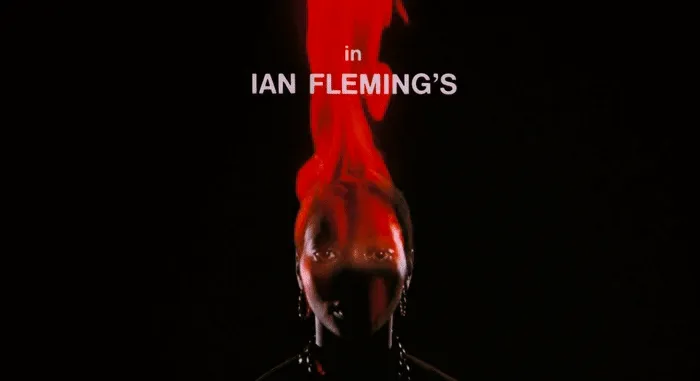LIVE AND LET DIE

When you were young and your heart was an open book
You used to say live and let live
(You know you did, you know you did, you know you did)
But if this ever changing world in which we're living
Makes you give in and cry
Say live and let die
(Live and let die)
Live and let die, let it die
(Live and let die)
It’s hard to feel good about much in Starmer’s Britain, as it seems the current (likely compromised) Prime Minister is determined to destroy the UK in record time under his so-called ‘stewardship’. Still, there’s a kind of nihilistic quality to the kingdom’s descent into anarcho-tyranny—and what better soundtrack for it than Paul McCartney’s classic Bond theme Live and Let Die, still the greatest 007 song of all time.
Listening to it in 2025 brings back memories of the days when my "heart was an open book," when I would enthusiastically circle TV listings for a Bond film airing on a school night. I’d then pop into the pub next door—the Golden Fleece—where the grumpy publican, Cliff, would appear through a hatch and grab me a few packets of nuts from a display board adorned with a scantily clad lady who vaguely resembled a Bond girl. Often, along with the nuts, I’d buy a Twix and a Coke—setting the scene for a perfect evening with Britain’s most famous secret agent.
I had no real idea what was going on in any of those Bond movies. All I knew was there’d be some car chases, some cool gadgets, and an awesome theme song. Those bizarre title sequences—always resembling a kind of kitsch avant-garde strip club somewhere in Eastern Europe—seemed strangely hypnotic.
Personally, my favourite Bond theme songs have been Carly Simon’s Nobody Does It Better from The Spy Who Loved Me, Shirley Bassey’s Moonraker, and Sheena Easton’s For Your Eyes Only. But more recently, I’ve found it hard to deny the majestic brilliance of McCartney and Wings’ Live and Let Die.
For a song that's roughly three minutes long, it’s pretty amazing how many musical layers are packed into the track. It opens with a teasing intro featuring Let It Be-style piano chords, then shifts into cascading, head-banging rock reminiscent of Helter Skelter, followed by a goofy, Ob-La-Di, Ob-La-Da-esque reggae interlude. There's also a ballad-like lament that recalls The Long and Winding Road, before it all wraps up with an emphatic heavy rock finish. In many ways, it was a kind of pre-Bohemian Rhapsody—a bold, genre-blending statement that proved McCartney was far more than just Yesterday. Just writing this, it’s hard not to feel a bit like Alan Partridge, who once famously claimed, “Wings—only the band The Beatles could have been!”
Of course, he’s wrong about that—but it’s hard to imagine such playful audacity in today’s British music scene, where it feels as though we’ve all become as sullen and craggy as Daniel Craig’s 007. We’re so weighed down by existential dread that we might as well not bother with pop culture at all, resigning ourselves instead to a kind of Groundhog Karaoke existence. Perhaps it’s the perfect metaphor for the death of a nation.
Still, in the jukebox of timelessness, why not slip away into a different era—back when Kneecap was an actual threat, not a clichéd cultural psy-op?
And I suppose Starmer would make a passable Bond villain, given his Communist work camp credentials in Yugoslavia during the 1980s. Plus he has all the hallmarks of a double agent—a sort of Philby for our times—crossed with the voice of Zippy from Rainbow.
The Spy Who Hates Us.